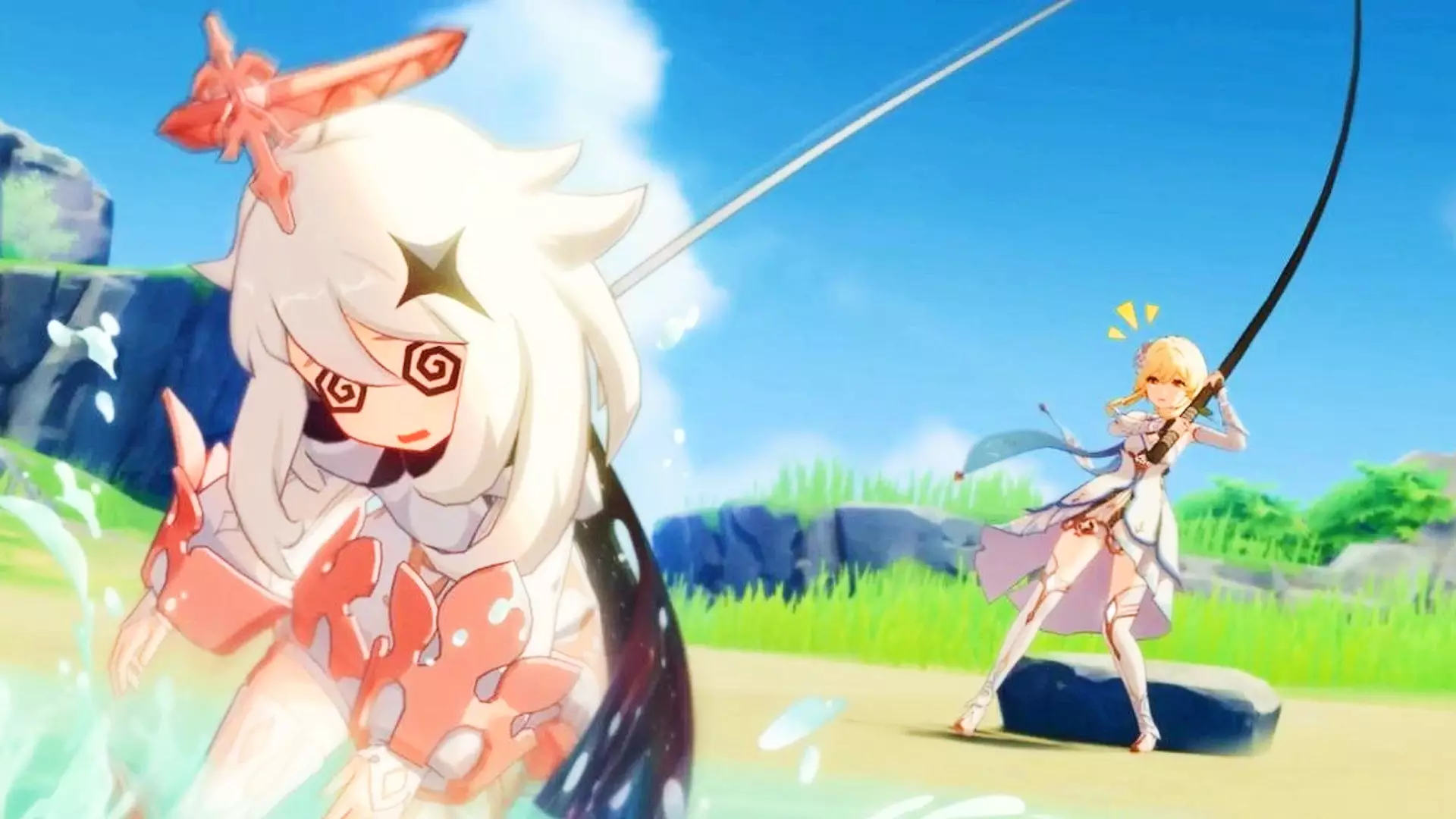The latest update of Genshin Impact, version 5.7, brings with it significant changes that have captivated players and stirred profound discussions within the community. Notably, this update introduced the much-anticipated 5-star character Skirk, stealing the spotlight momentarily amidst the more monumental shift involving the game’s beloved mascot, Paimon, and the established 5-star character Keqing. While fans often gravitate towards new characters, the nuanced recasting of these two iconic figures has reignited debates surrounding voice direction, character perception, and player attachment within the complex tapestry of this immersive game.
In many respects, both Paimon and Keqing represent the dual nature of Genshin Impact: a vibrant fantasy world brimming with life and endearing characters, while also exposing the intricate relationship players cultivate with the voices that bring these characters to life. The recasting of Paimon’s voice—arguably the most crucial narrative device in the game—and Keqing marks the end of an era that many fans are struggling to come to terms with. After nearly five years, the decision to replace these long-standing voices is unprecedented and reflects broader trends in the gaming industry that have profound implications for player engagement.
Player Reactions: A Mixed Bag of Nostalgia and Anticipation
The community’s response to the new English voice actors has been notably varied, presenting a spectrum of sentiments ranging from excitement to skepticism. This recasting follows a turbulent period, underscored by repercussions from the halted SAG-AFTRA video game actors strike, in which previous voice actors like Corina Boettger voiced concerns about their roles and future with HoYoverse. Boettger’s comments, seen by some as controversial, preceded her eventual replacement. Her role as Paimon was pivotal; she served not only as a companion to the protagonist but also as the game’s primary voice that articulated the storyline to players.
In light of the new update, early reactions seem positive; many players perceive the new voice to embody attributes reminiscent of Paimon’s initial portrayals, leaning towards a softer, deeper tone that has been well-received. This shift sparks a hopeful nostalgia, enticing players who preferred the early days of Genshin’s expansive universe. A few have remarked that the changes make Paimon feel more aligned with her original character essence, a view echoed by various content creators showcasing comparative analyses between the voices. As players begin to hear the new voice, the early sentiment shows promise for a refreshing rejuvenation.
Dive into the Mechanics of Voice Acting in Gaming
This situation illuminates a broader issue in the gaming industry surrounding voice acting and its impact on character development. Voice performances are not merely supplementary features; they actively shape players’ connections to a game’s narrative. Paimon, as an ever-present companion, has guided players through challenges, occasionally serving as a foil to the more serious tones of the world around her. The shift from her original voice may alter the baseline experience of interacting with the game dramatically.
Moreover, numerous debates within the community have emerged about the effectiveness of voice direction. Some players argue that Paimon’s previous portrayal had become too abrasive, with a growing perception of her voice being shrill and distracting, especially in high-frequency dialogue circumstances. The new direction aims to address these concerns, and while opinions still differ, it seems that the recasting is winning over those who felt distaste for the earlier iterations. It’s critical to recognize that these voice portrayals are not static; they evolve with player input and cultural shifts within the gaming industry.
Looking Ahead: Future Implications of Character Recasting
As Genshin Impact continues to expand its narrative and character roster, the implications of voice recasting will undoubtedly be felt across future updates. The decision by HoYoverse to change the voice of such prominent characters as Paimon and Keqing is a bold move that could potentially reshape the game’s dynamic. As they navigate the narratives of Genshin’s vast world, players will closely monitor how new character interpretations blend with the established lore and emotional connections previously crafted.
This update not only invites players to reevaluate their relationship with characters but also stimulates discourse about inclusivity and the representation of diverse voices in gaming. By embracing change and awakening dialogue about feedback, the Genshin community may foster an even deeper connection to the world and characters they cherish. The quest to find a voice that resonates with an ardent audience becomes part of a larger narrative tapestry, enriching gameplay and deepening player immersion in Genshin’s enchanting realm.

